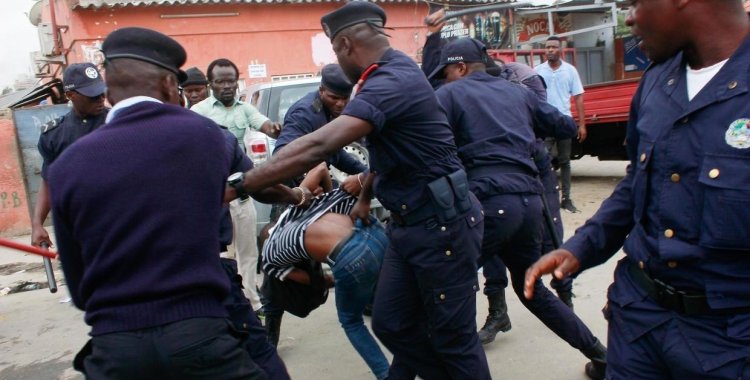The 2019 report on the state of human rights in Africa, released by Amnesty International, states, on Angola, that police and security forces continued to make "arbitrary arrests and detentions".
It adds that "many cases of arbitrary arrest, detention, torture and other ill-treatment have been made against peaceful demonstrators".
"Freedom of expression and peaceful assembly continued to be threatened, despite initial signs of progress," Amnesty International's report says, in reference to the transition in power in Angola, with João Lourenço becoming President of the Republic, succeeding at the end of 2017 to 38 years of José Eduardo dos Santos' leadership.
"João Lourenço's inauguration as President was driven by a palpable attitude of hope and optimism about the prospects for the protection of human rights in the country. Under his government, Angola saw some positive developments, including several peaceful protests carried out without repression, the acquittal of two journalists accused of defaming a public figure, and the reversal in the Supreme Court of unjustified sentences by a provincial court. However, the challenges remained," the report acknowledges.
Amnesty assumes that "the rights to freedom of expression and peaceful assembly remained under threat" in Angola in 2019.
Angola, one of the 35 countries on the African continent analysed by the non-governmental organisation's report, continued in 2019 to present problems for the population in the face of "land disputes due to large-scale acquisition for private use": "putting livelihoods and the right to food in rural communities at risk".
The report's warning also goes to "extrajudicial killings" that have continued to take place on land and diamond mines in the provinces of Lunda Norte and Lunda Sul, eastern Angola. "They continued with impunity," says Amnesty International, denouncing the involvement of public and private security forces in these crimes.
The report also recognizes that "despite the legislative improvements" introduced with the new Penal Code approved in 2019 - which decriminalizes homosexuality - "in practice people in consensual same-sex relations continue to face discrimination" in Angola.
As an example, the report mentions the 'attack' that occurred on 10 June 2018 against a shelter of the LGBT community defence association 'No Cúbico' in Luanda, then invaded by three men armed with knives and firearms, when five women were asleep and managed to barricade themselves inside.
"After an hour and a half, the men decided to flee, fearing that the police were coming. Instead of investigating the case to identify the attackers, the police questioned the women and used derogatory terms to describe the shelter, which they called a 'house of prostitution', for taking in single women," recalls the Amnesty International report.







